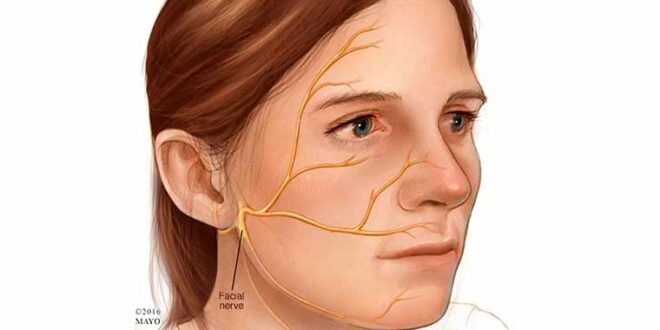Ramsay Hunt Syndrome, also known as herpes zoster oticus, is a rare condition that affects the facial nerve and the ear. It is caused by the varicella-zoster virus, which is the same virus that causes chickenpox and shingles. The condition is named after James Ramsay Hunt, who first described it in 1907.
Symptoms of Ramsay Hunt Syndrome can vary from person to person, but they typically include severe ear pain, a rash on the ear or in the mouth, facial weakness or paralysis, and difficulty with hearing or balance. Other symptoms may include fever, headache, and swollen lymph nodes.
The rash associated with Ramsay Hunt Syndrome is often painful and can be accompanied by blisters or sores. It usually appears on one side of the face or in the ear canal. The rash can also spread to other parts of the body, such as the neck or scalp.
Symptoms and Treatment of Ramsay Hunt Syndrome
Facial weakness or paralysis is a common symptom of Ramsay Hunt Syndrome. This can affect the muscles on one side of the face, causing drooping or difficulty with facial expressions. In severe cases, the paralysis can also affect the ability to close the eye on the affected side.
Difficulty with hearing or balance is another common symptom of Ramsay Hunt Syndrome. This can be caused by inflammation of the inner ear, which can affect the vestibular system. The vestibular system is responsible for maintaining balance and spatial orientation.
Treatment for Ramsay Hunt Syndrome typically involves antiviral medication, such as acyclovir or valacyclovir. These medications can help to reduce the severity and duration of the symptoms. Pain medication may also be prescribed to help manage the ear pain and rash.
In some cases, corticosteroids may be prescribed to help reduce inflammation and swelling. This can be particularly helpful in cases where there is facial paralysis or difficulty with hearing or balance.
Physical therapy may also be recommended to help improve facial muscle strength and function. This can include exercises to help improve facial expressions and speech, as well as exercises to help improve balance and coordination.
In severe cases of Ramsay Hunt Syndrome, surgery may be necessary to relieve pressure on the facial nerve or to repair damage to the inner ear. This is typically only recommended in cases where there is significant facial paralysis or hearing loss.
Overall, the prognosis for Ramsay Hunt Syndrome is generally good, particularly with early diagnosis and treatment. However, some people may experience long-term complications, such as persistent facial weakness or hearing loss.
If you experience any of the symptoms associated with Ramsay Hunt Syndrome, it is important to seek medical attention as soon as possible. Early diagnosis and treatment can help to reduce the severity and duration of the symptoms, and can improve the overall prognosis.
Causes and Risk Factors of Ramsay Hunt Syndrome
The exact cause of the reactivation of the virus is not known, but it is believed to be related to a weakened immune system. People who have a weakened immune system due to conditions such as HIV/AIDS, cancer, or organ transplant are at a higher risk of developing Ramsay Hunt Syndrome. Additionally, people who are over the age of 60 are also at a higher risk of developing the condition.
Other risk factors for Ramsay Hunt Syndrome include stress, trauma to the head or neck, and exposure to loud noises. These factors can weaken the immune system and make it more susceptible to the reactivation of the virus.
Symptoms of Ramsay Hunt Syndrome include severe ear pain, facial paralysis, and a rash on the ear or in the mouth. The rash is usually accompanied by blisters that can be painful and itchy. Other symptoms may include dizziness, hearing loss, and difficulty with balance.
If left untreated, Ramsay Hunt Syndrome can lead to permanent facial paralysis and hearing loss. It is important to seek medical attention as soon as possible if you experience any of the symptoms of the condition.
Diagnosis of Ramsay Hunt Syndrome is usually made based on the symptoms and a physical examination. A doctor may also order blood tests or imaging tests to rule out other conditions.
Treatment for Ramsay Hunt Syndrome usually involves antiviral medication to help reduce the severity of the symptoms and prevent complications. Pain medication may also be prescribed to help manage the ear pain and headaches associated with the condition.
In some cases, physical therapy may be recommended to help improve facial muscle strength and prevent permanent facial paralysis. Hearing aids or cochlear implants may also be recommended for people who experience hearing loss as a result of the condition.
Prevention of Ramsay Hunt Syndrome involves maintaining a healthy immune system and avoiding exposure to loud noises and trauma to the head or neck. It is also important to seek medical attention as soon as possible if you experience any symptoms of the condition.
Coping with Ramsay Hunt Syndrome
One of the most important things that individuals with Ramsay Hunt Syndrome can do is to seek medical treatment as soon as possible. This condition is caused by the varicella-zoster virus, which is the same virus that causes chickenpox and shingles. Early treatment with antiviral medications can help to reduce the severity of symptoms and prevent complications.
In addition to medical treatment, there are several self-care strategies that can help individuals cope with Ramsay Hunt Syndrome. One of the most important is to get plenty of rest and avoid overexertion. This can help to reduce fatigue and improve overall energy levels.
Another important strategy is to practice good stress management techniques. Stress can exacerbate symptoms of Ramsay Hunt Syndrome, so it is important to find ways to manage stress and reduce its impact on the body. This may include techniques such as deep breathing, meditation, or yoga.
Physical therapy can also be helpful for individuals with Ramsay Hunt Syndrome. This can help to improve muscle strength and coordination, as well as reduce pain and stiffness. A physical therapist can work with individuals to develop a customized exercise program that is tailored to their specific needs and abilities.
In addition to these strategies, there are several other coping techniques that can be helpful for individuals with Ramsay Hunt Syndrome. These may include using heat or cold therapy to reduce pain and inflammation, practicing good nutrition and hydration, and using assistive devices such as hearing aids or mobility aids.
It is also important for individuals with Ramsay Hunt Syndrome to seek support from family, friends, and healthcare professionals. This condition can be isolating and challenging, and having a strong support network can make a big difference in coping with the physical and emotional aspects of the condition.
Finally, it is important to maintain a positive outlook and focus on the things that can be controlled. While Ramsay Hunt Syndrome can be a difficult condition to live with, there are many things that individuals can do to manage their symptoms and improve their quality of life. By staying informed, seeking medical treatment, and practicing self-care strategies, individuals with Ramsay Hunt Syndrome can take control of their condition and live a fulfilling life.
 AksaraHijau.Id Kreatif, Inovatif dan Menginspirasi
AksaraHijau.Id Kreatif, Inovatif dan Menginspirasi



